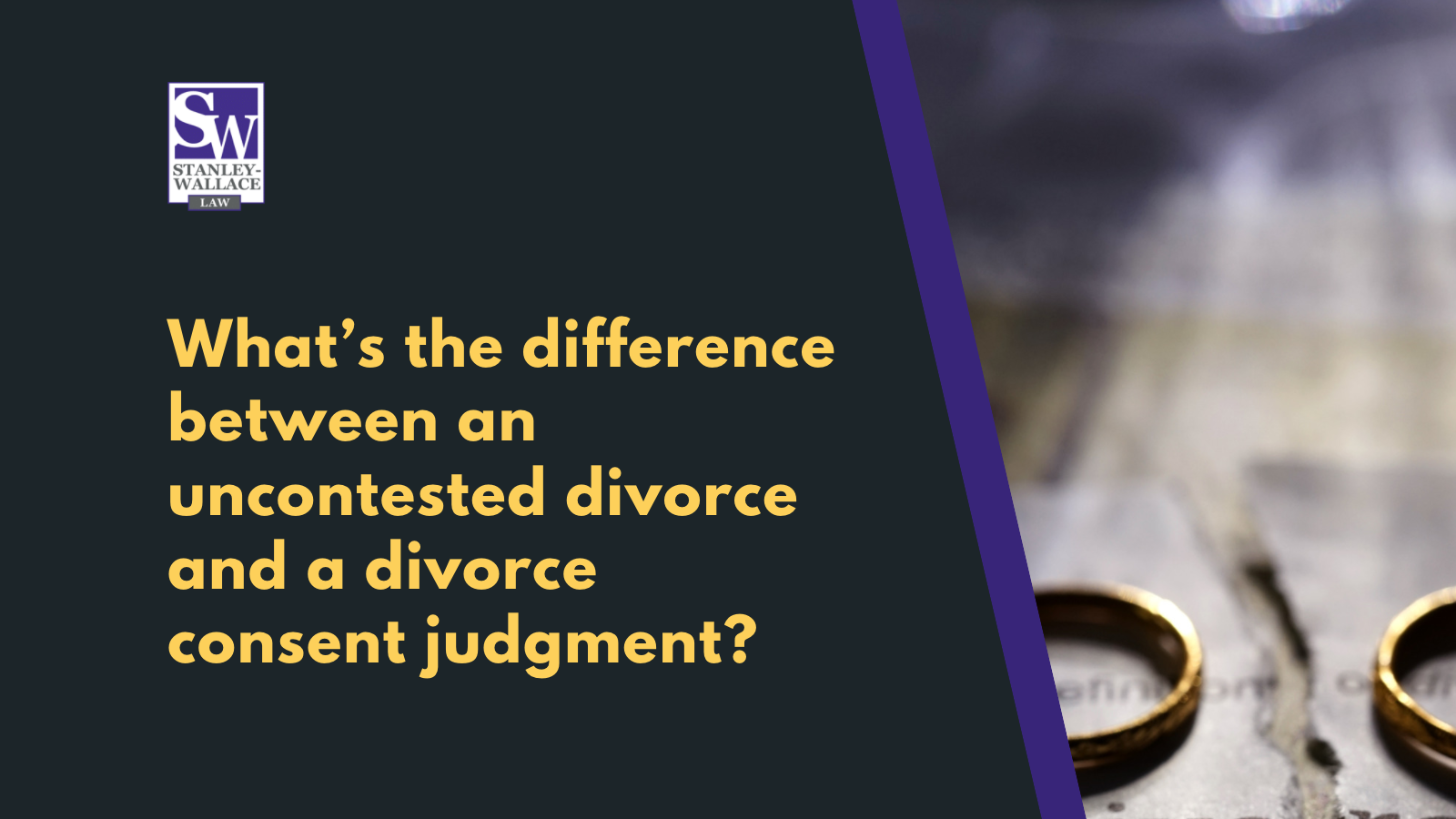Often, when we think about divorce, we have a mental image of a long, messy process involving court hearings and acrimonious disputes between the two exes.
In reality, the statistical majority of divorce cases in Louisiana come to an agreement. Those in which the parties come to an agreement at the very beginning are referred to as “uncontested divorces.” The opposite is known as a “contested divorce,” and usually involves a trial and some sort of decision made by a judge.
However, the differences don’t stop there. Uncontested divorces typically involve a document known as a “consent judgment” or “stipulated decree”. Contested divorces force a judge to come to a decision and render a “judgment” or “considered decree.” So what’s the difference between all these types of divorce?
At Stanley-Wallace Law, we’ve spent the last _seven years helping Louisiana couples through divorces, whether they’re simple or messy. Read on to hear from our team of family law attorneys about the difference between uncontested divorce, divorce consent judgments, and contested divorce.
Uncontested divorce
Whatever the circumstances of your divorce, if you and your ex agree on all the terms of your divorce, you can avoid a trial altogether and get what’s known as an “uncontested divorce.”
In Louisiana, if you’ve already been separated for six months (or one year if you have minor children together), then obtaining the actual uncontested divorce is as simple as signing a few rounds of paperwork and filing it with the court. If you have other issues, see below regarding Divorce consent judgments.
Even if you haven’t been separated for the required amount of time, you can still file for divorce and get all of your terms agreed upon in advance. However, you’ll have to wait until the required amount of time passes before you can finalize your actual divorce.
For couples that have no kids, no community-owned property, and no other terms to settle, an uncontested divorce is as simple as that.
Divorce consent judgment
But sometimes, the terms of a couple’s divorce might be a bit more complicated. These “incidental actions” that both parties need to agree on are often the issues that take a contested divorce to trial.
However, if you and your ex still want to settle some or all of your incidental actions, you can agree on these terms mutually by signing a “consent judgment.” A consent judgment is a legal document, enforceable by the court, that lays out how you are going to divide your responsibilities and/or property before or after the divorce.
Some of the issues that may be covered by a consent judgment include the following:
- legal custody of your minor children
- a physical custody schedule for your children
- child support payments
- spousal support payments
- community property partition: property, assets, debts, etc.
You will need an experienced family law attorney to walk you through the terms of your consent judgment and sign off on terms that satisfy both parties in the divorce.
Contested divorce
When negotiations between you, your ex, and your attorneys fail to reach a settlement that satisfies everyone, you may need to move forward with a contested divorce.
Check out our blog about contested divorces for tips on how to prepare your case for trial to ensure that you have the best chance at a favorable outcome.
The most important thing you can do when going through a contested divorce is secure the services of an attorney with years of experience representing parties in divorce proceedings and helping clients prepare for trial and come out of the trial with the best possible outcome.
Hire a divorce attorney in Louisiana today
At Stanley-Wallace Law, we understand that you just want what’s best for you and your ex. That’s why we draw from our considerable experience and knowledge of the law to represent our clients and make sure they are getting a fair deal. Contact us today to schedule a consultation and discuss what your next steps should be in your divorce.


